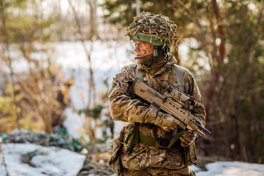
Calls to Challenge Panel Decisions After Injured Soldier was Belittled by Panel
It’s been widely reported that a military officer with 26 years of service was the victim of derogatory and insulting remarks during a consultation with a civilian panel advising the Ministry of Defence on his Armed Forces Compensation Scheme (AFCS) claim.









